Projects
Practical learning through sustainable projects
On this page you will find a selection of projects undertaken by students of the Global Project and Change Management programme, spanning year 1 to year 4. These projects are aligned with one or more of the 17 sustainable development goals set by the United Nations. We encourage you to have have a look at these meaningful projects!
Year 1 & 2
-
-
Y2 | Future partnerships for the CVD
The five students in this group were presented with an interesting and socially relevant challenge: to increase the network of CVD, their Rotterdam-based client, and connect them with potential new partners. CVD provides housing and support to homeless people and people with mental disabilities who have struggled with integrating into society. In order to create new partnerships, the students organized an informative networking event in Rotterdam. They hope that CVD can continue expanding its network in order to have an even bigger impact and to be able to help even more people that are struggling.
Advisory report
A project by Roosmarijn van Suchtelen van de Haare, Moon Burger, Jule Wormann, Lara Baier, Savannah Koch.

-
-
-
Y2 | A history on the colonialization of women’s bodies
Racism is still very much present in many layers of society. One of these is - perhaps unexpectedly - the field of obstetrics and gynaecology (OB/GYN), which focuses on female reproductive and overall physical health. To explain this disconcerting trend, we must go back to the very beginning of this medical specialty. The very ‘Father of Gynaecology’, James Marion Sims, achieved his lauded title by spending years experimenting on and exploiting enslaved black women in the 1800s. More than a century later, the Negro Project and the Mississippi appendectomy - both centred around forced sterilization - are two appalling examples of how BIPOC women have suffered at the hands of the local healthcare systems. And even today this problem has yet to be solved.
This raises an important question: should race be recognized as a biological concept in healthcare? This project offers two perspectives regarding this matter, and in doing so does something greater still. It contributes to the recognition and acknowledgement of BIPOC women that has long been denied to them in mainstream scientific history.
Report: The history of race in obstetrics gynaecology and the mortality rate of black women
A project by Grace Vianna Bitengo.
-
-
-
Y1 | Honours DNA
The sentiment ‘nobody wants to work anymore’ has never been less true than today. Today's market is saturated with a wide variety of young people that are eager to start their careers. However, one question looms in the minds of many young adults and even some adolescents: is going to college and getting a degree worth it? This group of students set out to discover what separates the Honours degree students from the others when it comes to accomplishing goals. To this end, a selection of students, lecturers, alumni, and companies were interviewed. Moreover, the importance of the WHC community was investigated, for instance in relation to students’ prospects and opportunities in the labour market.
You can read their report here.
A project by Mirthe de Raadt, Nicoletta Prange, Christopher Bernzen, Sarah Ghasemi.
-
Y1 | Consent
In recent years, ‘consent’ has become quite a loaded and significant term, but it can simultaneously mean different things to different people. Movements such as ‘Me Too’ and ‘Times Up’ have spiked an ongoing debate on the importance of consent. But what exactly does this word mean to the students of Windesheim?
This group of students aimed to raise awareness about consent and sensitize students to this topic. With their project, they illustrated that consent may be subject to different opinions based on gender, race, and specific backgrounds. Learn more about what the students discovered in their video documentary below.
A project by Noa Glastra van Loon, Femke Rouschop, Tessa de Waal, Leila Azelmad and Florian Schmidt.

-
-
-
Y2 | NS and Fairspace
This project was set up by students for their Social Marketing class, in collaboration with Fairspace and Dutch Railways (NS). The students were challenged to come up with a Social Marketing campaign to raise awareness about harassment and the importance of the so-called ‘bystander effect’ in public transport in the Netherlands. Two student teams were selected, as their ideas aligned the most with the mission of Fairspace. Subsequently, these two teams were invited to a meeting with NS and Fairspace to present the poster they created and their overall idea to a representative of NS, and to discuss the next steps.
After this meeting, the students were asked to create a Social Marketing campaign that was going to be displayed in the NS trains. Afterwards, Fairspace reached out to both student teams again and asked them to collaborate on a design. The teams agreed on the fact that the most impact could be made by displaying the posters on the information screen in the trains. To create this design, the two teams combined the most important qualities of the two initially designed posters. The end results can be found on this page, as well as a picture of some of the students present at the meeting with NS.
A project by Philipp Hirzinger, Hannah Bollman and Dana Wong.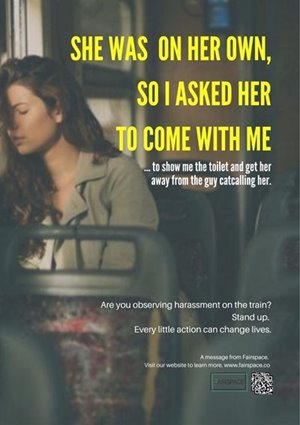
-
Y2 | Beauty Ideals
As time passes, many things change constantly. One of those changing things has always been the beauty standards, affecting us more than we think. Especially in today's world of social media and the rise of influencers, beauty standards are not only more prominent, but are also pushed more and more to act as a standard for people. They oppose freedom as they create a narrative for men and women to live up to, instead of just being themselves. One of the places where that is more prominent is the Western world, and the people most affected by it are women, especially those of colour. You may not fall into that category, but you are still affected by the beauty ideals that surround us. You may not feel as if it has a huge impact today, but listen to the ones that feel it the most. These are the stories of those women and what they think about the beauty ideals that surround them in real life and social media; these are their thoughts as women of colour in the Western world. And they've got a lot to say.
A project by Hien Ngo.
-
Y2 | Ni una más: Feminists against Femicides
“We don’t want to be brave. We want to be free.” Slogans like these can be found on countless signs during the International Women’s Day march on 8 May. The reality highlighted by this statement is grim and serious: women march for those who are brave but cannot live freely. Femicide rates – the targeted murder of women – run rampant worldwide, and out of 25 countries where these numbers soar highest, 14 alone are in Latin America. The definition of femicide is legally disputed, but the facts are clear cut: femicides are characterized by ongoing threats or abuse, sexual violence and unequal power relations. Countless cases go unprosecuted. The gendered motive behind such murders is what captured Famke to dig deeper. In her exposé, Famke explores the cultural dimension of violence, the ancient-rooted notion of patriarchy and its solidification in machismo. There, she explains why women are more likely to be killed by someone they know than by strangers, and what types of interventions must happen to prevent gender-motivated violence. Notably, under an initiative spearheaded by the UN and the EU in tackling SDGs 5 (gender equality) and 16 (peace and justice for all), Famke emphasizes the importance of combining legal changes with early intervention programmes such as non-violent conflict resolution training and multi-agency efforts in offering direct assistance in cases of violence. A holistic approach is after all our best shot at stopping femicides. There is reason to hope, she urges, and real change must begin with promoting a more positive and healthy perspective on masculinity.
Report: Ni una más - Feminists against femicidesA project by Famke van der Wal.

-
Y2 | Racism within feminism
Feminism is about all genders having equal rights and opportunities. It's about respecting diverse women's experiences, identities, knowledge and strenghts, and striving to empower all women to realize their full rights. Even though that may be its definition, it has swayed back and forth many times in regard to what it does to and for women.
Such a strong word with a clear statement, meant to bring everyone together for a great and noble cause. Yet, despite its focus being on empowering women, not all women felt like it was a good movement for them. One term got a bit blurry in between all of that, and that is inclusion.
While some believe feminism stands for the rights of all women, it is argued that the movement itself isn't inclusive. Feminism in itself has become mainstream, riddled with beliefs that all women encounter the same struggles regardless of their race. The following is a student product focusing on that exact issue, in a form of slam poetry. It questions the inclusion of women of colour in the feminist movement and introduces a solution to it.
Short paper: Racism within Feminism
A project by Helena Cormelia Remeo.
-
-
-
Y2 | Sustainable business parks
This group of students, calling themselves ‘Team Beco’, collaborated with Windesheim Research Group Energy Transition and ERNON in order to develop strategies for the energy transition in business parks. The team was also tasked with investigating obstacles and challenges that would arise during this transition. The main focus of the team was on solar panels on the rooftops of buildings, and reasons why this could be challenging. One outcome of this research was that certain insurance companies would not cover these solar panels, which meant that some businesses could or would not install them. This led to a follow-up question for the team to answer: why would these insurance companies choose not to cover this sustainable initiative?
Aside from these research topics, the team also decided to compare this situation in the Netherlands with that in Germany. To this end, an interview was held with a German insurance advisor. The team discovered some financial, security-related and practical obstacles along the way, and proposed that stakeholders and other parties involved would continue this research, as well as trying to raise awareness of these issues.
Research report
Project report
Presentation
A project by Antonia Grassl, Amber Lups, Frédérique Hoogland, Helena Comella, Jule Günther and Malik Rast.
-
-
-
Y2 | Smart Cities: SensHagen
The municipality of Zwolle, together with KNMI, RIVM and the neighbourhood Stadshagen, came up with a project to increase sustainability in the latter neighbourhood. Residents were provided with smart sensors to measure air quality, among other things. The municipality has since then aimed to expand this project to other neighbourhoods. However, the incentives for residents to choose whether or not they would want to participate are still unclear. That is where this group of students can be of assistance. They decided to analyse these incentives for participating, as well as assessing prior knowledge about climate action and sustainability, among residents of two neighbourhoods: Holtenbroek and Diezerpoort.
In order to determine the interest in the project among the population of the two neighbourhoods, a questionnaire was created by the students. The results showed that both awareness of sustainability and willingness to participate in the project were higher among the Holtenbroek residents. The students made some recommendations to the municipality of Zwolle based on their research outcomes, in order to hopefully facilitate the implementation of the project in these neighbourhoods.
Research report
Advisory report
PresentationA project by Dominika Szabóová, Mariana Tolkatser, Ylva Heijman, Bruno Renirie and Laura Rorije.

-
-
-
Y2 | Understanding Satire: An Interactive Game
Humour is an incredibly popular, personal and polarized concept; most professional comedians will agree on that. Through episodic video clips organized into a fun interactive game, Willem explores a diversity of satire scenarios, including satirical takes on politics, racism, sexism, personality traits, and religion. He urges viewers to agree or disagree at the end of each scenario, which makes for an interactive social commentary. Willem uses pop culture references such as clips from South Park and a stand-up comedy special, and infuses this debate with several theories on cultural relativism and superiority. Naturally, Willem also showcases his own sense of humour in his project.
With free speech being threatened all over the world, Willem believes that satire is a potent conduit for social awareness and education. Willem’s ideology here is clear: no boundaries or limits should be imposed on satire, as it is a right to freedom. After all, is self-aware satire not one of the most effective weapons to fight inequality and ignorance?
Final product
A project by Willem van Dort.
-
Y2 | The Debate on Pornography
In this project, Samuel takes you through the intersectional research behind the notorious industry of pornography and the social criticism this dividing topic stirs among the public. On the one hand, this industry has some ambiguous and even shocking sides; (sexual) violence – mostly against women –, patriarchal structures and inequality, and human trafficking are all aspects of the world of pornography. On the other hand, pornography can provide sexual relief from a distance, which can be both practical and improve one’s privacy. Moreover, there are women who argue it is a form of feminism and self-expression, thus presenting pornography as something liberating and emancipating.
In his vlog, Samuel argues that pornography should not be banned, but “it needs to be talked about instead of being ignored, its nuances and complexities must be recognized.” There is such a thing as ethical, ‘fair trade’ porn, which requires more mainstream attention. This might change the perception of pornography on the whole.
A project by Samuel Wagner.
-
Y2 | The debate on a German Leitkultur
What do you associate with Germany and the Germans as a people? Is it Lederhosen and various types of Wurst (sausages)? Or is it fast cars, the Autobahn and the Germans’ industriousness? This question has been at the heart of the current debate about whether Germany needs a ‘Leitkultur’ – a leading culture. This topic has gained significant impact in the context of refugee migration in the past 20 years. Eiko addresses the ‘for’ and ‘against’ arguments of this debate in his podcast. He takes listeners through different perspectives, guided by one red thread: does a Leitkultur contribute to a more cohesive society, or does it in fact result in more polarization?
Germany is a large and diverse country, and due to regional cultural identification and local patriotism the Northerners would paint a rather different picture than the Southerners. Consequentially, Eiko poses that while the idea of a guide for newcomers on impressions of the German culture would be an option, it should be offered as an informal and regionally dependent activity. In Eiko’s own words: “Germany is a cosmopolitan country, and everything you need to do to be part of society, is to adhere to the rules written down in its constitution.” Since a single Leitkultur might prove to be perhaps too uniform and controversial, Eiko’s suggestion might provide an attractive alternative.
A project by Eiko Saathoff.
-
-
-
Y2 | Ragnarøk Clothing
On a worldwide scale, we are faced with excessive consumerism, climate change, and enormous waste generation. Yann, who feels strongly about sustainability and responsible production of goods, decided to start his own sustainable clothing brand to counteract these negative trends: Ragnarøk(opens in new tab). The community of Global Project and Change Management was at the heart of the initiation phase. This rich network of students, lecturers and external relations was highly valuable in assembling the initial start-up team.
The motto of Yann and his team is: ‘we refuse to simply accept that there are no other options to the way we produce and consume.’ The business’ focus was initially on making a small impact, but ultimately, they want to start regenerating the planet by changing the current system.
A project by Yann Wunsch, Daniel Cohen Stuart.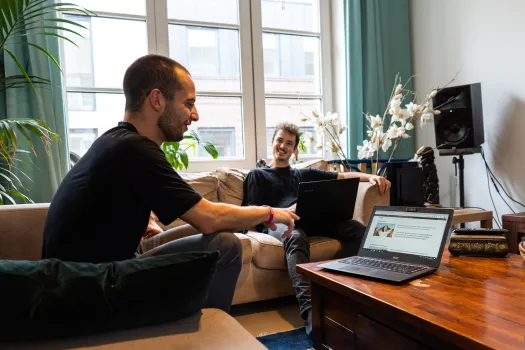
-
Y2 | Circularity in Meppel
Sustainability and circularity are focus points in most cities and villages in the Netherlands. In Meppel, questions about the current way of processing waste materials that could be recycled are currently being addressed. This group of students wanted to research how this was approached at the time, and then compare that to the goals that had been set (Circulair Ambachtscentrum / Circular Crafts Centre). The students were working for and with NICE (Noordelijke Innovatielab Circulaire Economie / Northern Circular Economy Innovation Lab), which promotes circularity in the region.
The group of students proceeded to conduct research into what prevented inhabitants from living more circularly and to find out what interventions could be taken to change their behaviour. As a case study, the team used the ‘life cycle’ of a sofa. This example was included in the team’s final portfolio, which was then presented to the client, NICE.
Professional ProductA project by Johanna Emilie Tammik, Samira Gunselmann, Sandra Gantner, Julian van Leeuwen.
-
-
-
Y1 | Impact Plek
Impact entrepreneurship, sustainable businesses and working towards a new economy; these are some keywords from this project, performed by a group of Windesheim Honours College (WHC) students. They worked together with a start-up in Apeldoorn, which aimed to increase engagement with the topic of impact entrepreneurship by means of the ‘Impact Plek’ (Place of Impact) community. In order to gain more publicity for this community and for the regular events that took place at the ‘Impact Plek’, the students initiated a social media campaign. They shared interviews, visuals and scheduled events on social media platforms, and by means of storytelling they managed to engage a significant audience.
At the ‘Impact Plek’, an array of artists and other changemakers is working tirelessly to change the current economy and business models. An artist working with paint that can absorb CO2 emissions, another member developing a new type of reusable water bottles – anything is possible within this networking environment. Their stories show how we can work towards a new economy with a central focus on sustainability, creativity and positive impact on our everyday lives.
Executive Summary IPM
Project Report Startup Apeldoorn
A project by Anastasia Schneck, Sem Huisintveld, Isa van Loenen, Louisa Edekobi, Maud van Wanroij.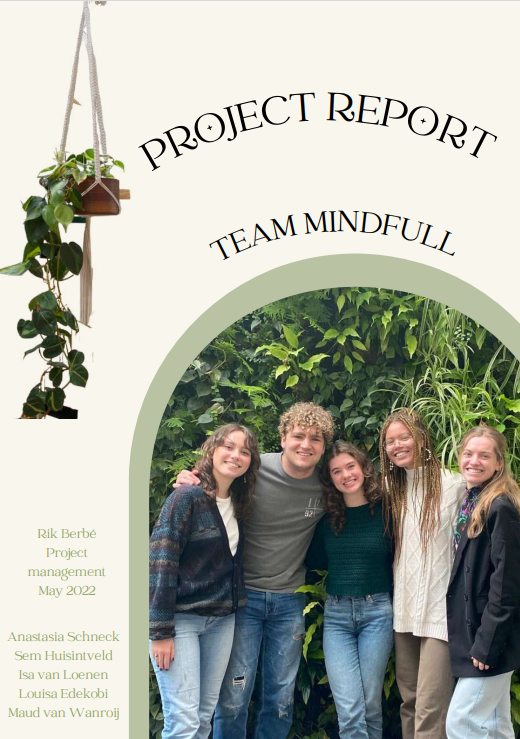
-
Minor: Managing Projects for Sustainable Development
-
-
Healthy Ageing: Opportunities for homecare innovations in Bosnia and Herzegovina
Have you ever wondered what life will be like when you are old and in need of special (health)care? Will you have access to professional care and nursing services offered at your own home, and will your children and grandchildren tend to your socio-emotional needs? For many elderly people, having professional, holistic care provided in general is not an option. Even when comparing two European countries, the disparity can be sobering, which is largely due to different socio-economic backgrounds.
For this project, the situations in the Netherlands and Bosnia and Herzegovina (BiH) have been analyzed and compared by a team of four WHC students. Based on valuable conversations and interviews with Dutch-based and BiH experts and professionals in the field, they presented their findings as a constructive advisory report to their client, the Mozaik Foundation(opens in new tab). The report offered valuable insights and tips for stimulating social entrepreneurs and intrapreneurs in BiH to start innovating for homecare solutions.
Mozaik Foundation: "I was very impressed by the quality product the project team delivered to us, the Mozaik Foundation, as it was a very thorough report about the BiH homecare situation. (...) [The students'] main contribution was definitely their role in doing research on something that even on a government level here in BiH was not happening yet, as we lack this kind of information and researchers, because homecare was still not so big of a topic in BiH."
A project by Lisa Grages, Léa Jebali, Lena Meisinger and Janna Neleman.
-
-
-
A SILC project in Spain
This project has been undertaken by students of the MPGW minor. Together, this group of students formed ‘Team Spain’, and they travelled to Barcelona to collaborate with students and teachers of the Jesuites Sarrià Sant Ignasi school on the development of a Global Citizenship module. The team incorporated perspectives from schools in the Netherlands, Romania, Uganda, and Spain to improve and implement the Global Citizenship module across all Sustainable International Learning Community (SILC) schools. In addition, the students devised a toolbox with an array of resources for the teachers to implement in their classes.
The team used the Design Thinking approach, which consists of three major steps: Emphasize (with stakeholders), Define (the problem), Ideate (brainstorming solutions), Prototype (experimentation and evaluation), and Test (try-out, and - if necessary - make improvements). At the end of this project, the team had produced several deliverables, among which a useful toolbox for teachers and the Global Citizenship module. The feedback from the students who were presented with this module and toolbox was overall very positive, and the team also came up with several recommendations to ensure a successful future for this module.
Link to final presentation
Link to project dossier
A project by Norma Jamann, Grace Vianna Bitengo, Chantal Elly Christenson, Franciska Nemet and Wilma IJpma.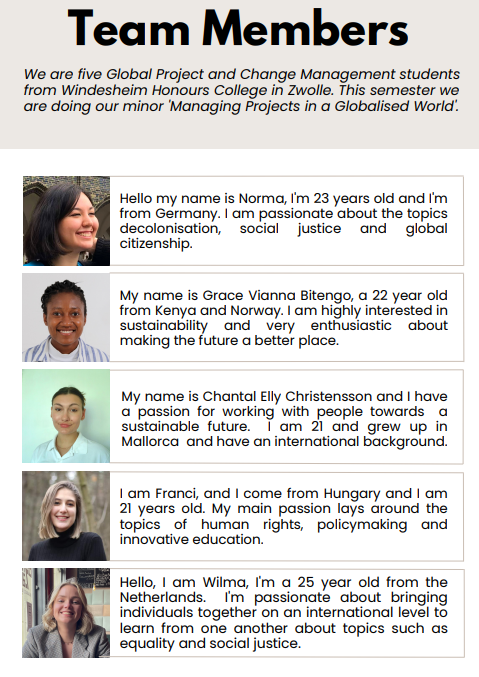
-
-
-
Upcycling plastic: HxN and Conserve
This project has been undertaken by students of the MPGW minor. Together, this group of students formed ‘Team India’, and worked with two clients in that country – Hecho por Nosotros (HxN) and Conserve. The aim was to guide workers, and show them how they could use different machines to upcycle plastic into fashion. As such, this project revolved mainly around sustainable consumption, wastemanagement and a decent work environment.
In order to achieve this, the team created training modules which were specifically adapted to unskilled workers. This required substantial insight into all stakeholders and their interests and limitations. For instance, since not all workers would be able to read, the team included many images and other visuals. Aside from the training modules, the team also provided a webinar, and worked with the team on networking skills and opportunities. Finally, the team contributed to product innovation, by being involved in (experimentation with) the creation of plastic sheets.
Overview deliverables and timeplan
Training Module
A project by Helena Comella Romeu, Marjolein Koek, Dureid Al Saman, Klara Wrusch.
-
-
-
Business Case Hempcrete in Chile
This project by students of the MPGW minor revolved around creating a business case and market entry strategy for the introduction of hempcrete into the Chilean market. To this end, the group of students collaborated with the University of Concepción (UdeC) in Chile. The team’s business case mainly focused on Diamond Hemp, a hemp company which aimed to develop hempcrete blocks for sustainable construction. The reason for this: hempcrete is an eco-friendly material made from hemp plant cores mixed with lime and water. This material has excellent insulation properties and a lower environmental footprint than traditional materials like mineral wool and polystyrene. Diamond Hemp’s initial target group consists of construction companies, but eventually they hope to reach environmentally conscious individuals as well.
Introducing hempcrete into the Chilean market could help address social issues like housing shortages and inequalities, while simultaneously promoting environmental sustainability and economic growth. The steps required for commercialization are outlined in the business plan, and include research, funding and product certification.
Final presentationA project by Nele Fricke, Hannah Bollmann, Emma te Bokkel, Hannah Meuwissen en Paula Mayorga.
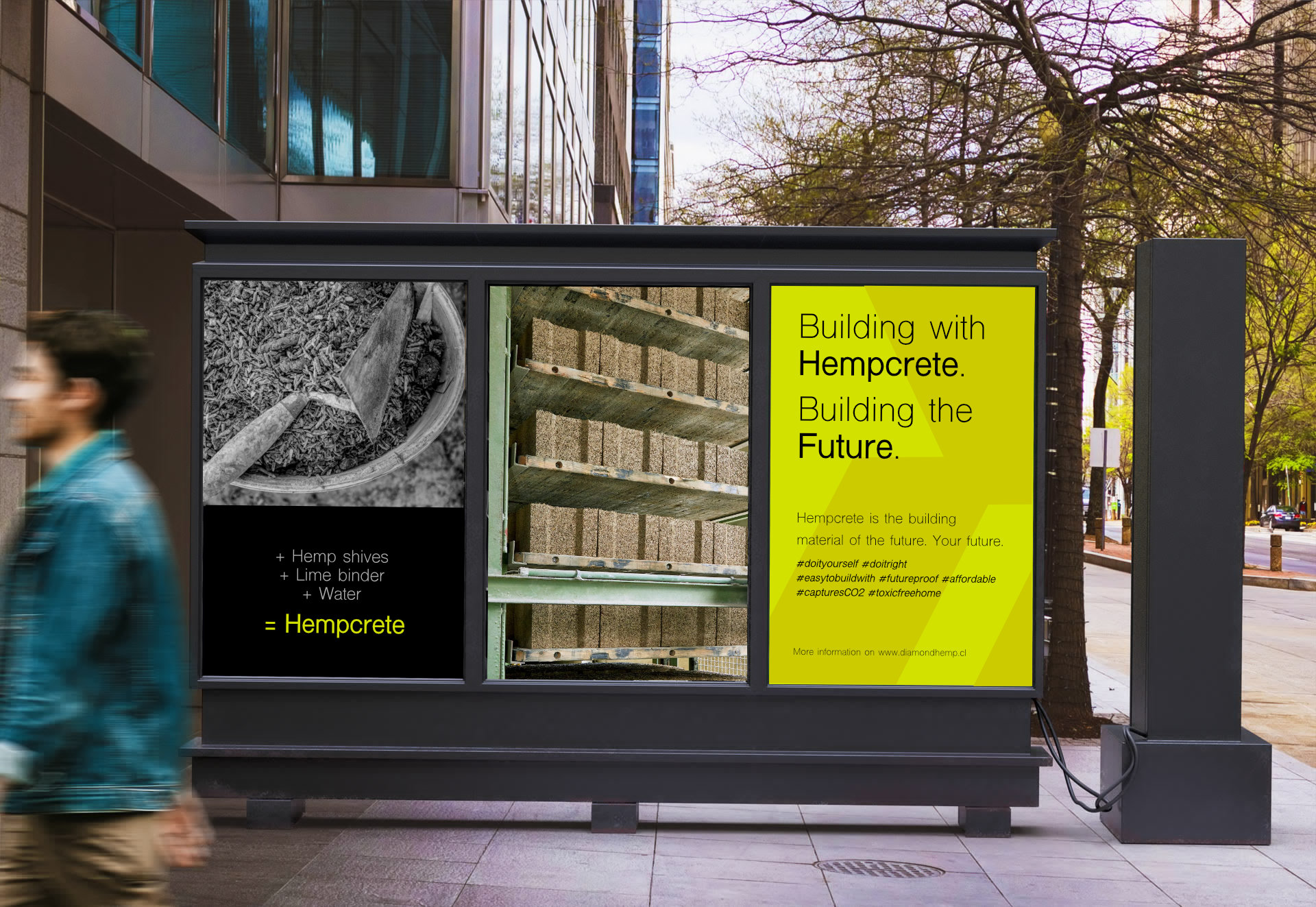
-
-
-
Reducing plastic waste at SPAR University
This group of students, collectively named ‘Team Netherlands’, investigated how the SPAR University on the Windesheim campus could reduce the amount of single-use packaging waste materials. To this end, the students from the MPGW minor worked together with Windesheim. The team aimed to be able to provide the SPAR University with helpful advize on how to reduce their ecological footprint, by means of analyzing alternative packaging materials and both the attitudes and behaviour of customers. The students also paid attention to both the challenges and opportunities that played a role in tackling the issue at hand.
One important finding of this research was the suggestion of a direct relation between product prices and environmental consciousness. The team therefore argued that the availability of reasonably prices and more accessible sustainable alternatives might increase customers’ willingness to pay more for environmentally friendly packaging. Moreover, a majority of the participants was aware of what the Single Use Plastic (SUP) policy entailed. These participants also revealed that their knowledge of the policy would likely impact their shopping habits. These findings led to several recommendations made by the group that could help SPAR University reach their goal.
Advisory report
Research posterA project by Amber Greefhorst, Eva Kranendonk and Laura Rorije.
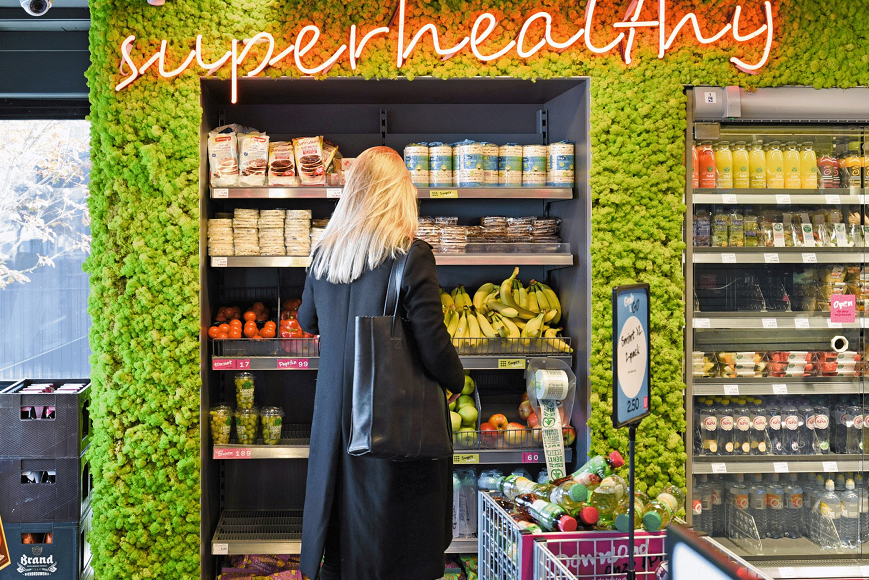
-
Student participation in sustainability at Windesheim
This group of students asked themselves: how could students at Windesheim become more involved in sustainable efforts on the campus? This involvement could be both passive and active. The group presented the students with a survey and focus group discussion on the topic. From the results, they deduced that students were quite open to the idea of integrating more sustainability-related content into their studies, as well as into extracurricular activities, provided that they were given a reward. Moreover, the students did indicate that they would prefer a ‘more focused and practical approach’.
Regarding a concrete sustainability strategy, the group highlights the importance of delegation. Aside from the already existing Sustainability Team at Windesheim, a Green Office could be installed to collaborate on the targets. The team also noticed that there was only limited connection between the different stakeholders, and that at the moment, no clear vision has been established regarding goals and expectations. In summary, the group concludes that there are three main points of advice: Clarify, Collaborate and Communicate. More concrete findings, suggestions and conclusions can be found in the advisory report below.
A project by Gloria Stoyanova, Lorenzo Giudici, Lynn van Zeijts and Mar Masuet.

-
-
-
Sustainable International Learning Community project in Uganda
A group of students from the MPGW minor worked together with the UP4S Foundation, which aims to support, enhance and/or re-develop primary and secondary education in the Republic of Uganda. This organization also wants to improve the social situation in the broadest sense of the word. UP4S has established a primary (Kidsgear) and a secondary (HOYS College) school, as well as an outreach teaching project in Bukumansimbi, Uganda.
The focus of this Sustainable International Learning Community (SILC) -related project was on improving vocational education and food security. The team contributed to the further development of a soil game by several educational institutes in Uganda and the Netherlands. Moreover, the group made a case for even more efficient collaboration among the Ugandan and Dutch stakeholders.
MPGW Project AssigmentA project by Samuel Wagner.
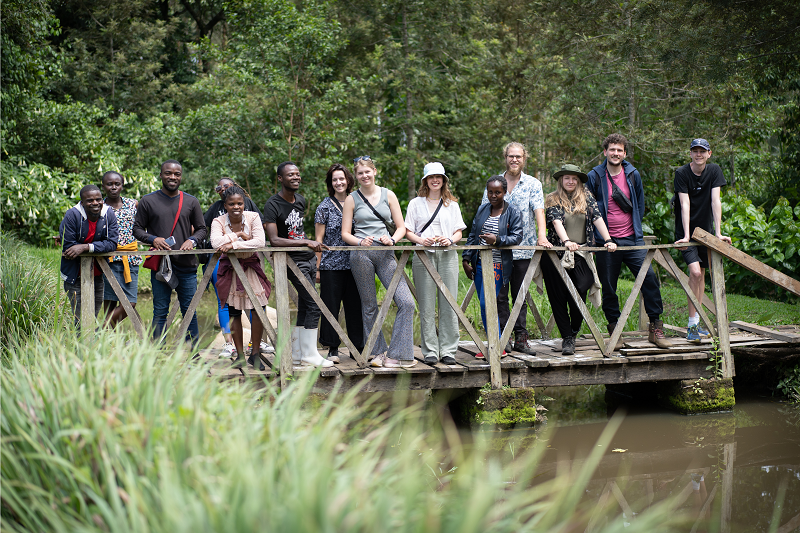
-
Minor: Value Creators
-
-
The Hormonize Team: balance women’s menstrual cycles
Many women experience intense pains, mood swings and discomfort during their menstruation. The Hormonize Team wanted to create something that would help women find a better balance with their menstrual cycle and all it brings. Through research, co-creation, and collaboration, the students have found several important topics that needed to be discussed and put them together in a four-episode podcast: 'Hormonize the Podcast'.
The students strongly encourage others to share the podcast with their network and other young women in their lives that need to hear more about these important topics. The podcast touches upon, among other things, the menstrual cycle and its phases, symptoms, nutrition, lifestyle, and femininity. This informative podcast can be found on Spotify(opens in new tab), YouTube(opens in new tab) and Instagram(opens in new tab).A project by Amber Lups, Limor Guetta, Margot Lebreton and Sophie Dortu.
-
-
-
Unravelling Narratives
International development and the work of NGOs and non-profit and for-profit organizations has brought considerable changes to the world, which rings especially true for what is often referred to as the ‘developing countries’ – but are all these changes positive? This group of students delved into that question, and more specifically, into the topics of ‘voluntourism’ (volunteer tourism) and White Saviorism. As the students explain, White Saviorism perpetuates the idea that white-coloured people who usually come from the Global North are needed to ‘save’ people in the Global South. Knowing this, it is easy to notice the power dynamics that come into play when volunteers travel south to help countries, cultures and people in need. Most of the time, this skewed relationship between the two parties is not intentional, or even noticed by the volunteering side.
In order to encourage other students to debate these topics and the issues that are tied to White Saviorism, the team has created an educational card game which contains engaging questions and prompts. By using these cards as guidance, the students can have meaningful conversations about unconscious racial and cultural bias, which can help to unravel and then reshape the current harmful narratives.
Card gameA project by Roy Nieuwveld, Hjalte Andersen and Naemi Hölzlsauer.

-
-
-
Good4You
Our food system can, in several ways, be classified as ‘broken’. To improve the current situation, this group of students came up with the idea for Good4you. For this project, they founded a food community at Windesheim Honours College which provides a box full of fresh, organic, seasonal, and regional vegetables and fruits to students and lecturers every two weeks. The students aimed to have a ‘direct link’ with the farmers – and effectively cut out the retailers – and to make people more aware of issues and mistakes within the agri-food systems. Moreover, they hoped to ensure that people would appreciate and enjoy their food more. This approach relates to the ‘Farm-to-Fork’ strategy of the United Nations.
During an interview with one of the members of the team, Fabian, he said: ‘One of the nicest parts is to think about upscaling and the possibilities which come with that. A blueprint to build such a community was sent to several other universities that might implement a similar food community. This would increase the overall value and impact of the project. But even scaling the initiative up to a Windesheim wide scale, is an absolute dream.’ The group is very content with the impact this project has already had, but they would certainly like to see what other positive developments might come at a later stage as well.
FlyerA project by Alexandra Schacht, Meike Krämer and Eva Härter, Fabian Adler.

-
-
-
The Ocean & Art Team: Marine biodiversity and ocean conservation
This group of students aimed to make one thing very clear to the general public: we cannot do without our oceans and their marine life. It is critically important to ensure that biodiversity and the wide variety of life in our oceans is protected. Unfortunately, these desperate pleas too often fall on deaf ears. Especially among younger people, such as students, this can be discouraging and maddening.
For this reason, the Ocean & Art team decided to make a proposal: a national contest, in which students can submit their own piece of art that expresses their emotions about our oceans – regardless of whether these are negative or positive feelings. A selection will be made of these pieces of art, which will feature in a multi-media exhibition. In order to promote and further explain this ambitious yet noble goal of orchestrating such an exhibition, the students have created an informational guide. The group hopes that their idea will come to fruition and that this will lead to more awareness of this important topic.
A project by Fay Goedbloed, Charlotta Westphal, Marie Joost and Kathrin Bangert.

-
Information about the minors
Internship
-
-
Food access disruption among refugees and migrants in Athens
For her internship project, Leona investigated the food access disruption among refugees and migrants (RMs) in Athens, the Greek capital. Leona’s research encompassed interviews with experts, desk research and also face-to-face surveys with refugees and migrants. Leona accumulated ‘20 dimensions that underlie the food access disruption as well as 8 key unmet needs’, which she addressed in her report. By means of this report, Leona aimed to support the NGO where she completed her internship, namely INTERSOS. This NGO has a special focus on victims of humanitarian emergencies.
In her report, Leona clearly divided the 20 dimensions across 8 domains: Economic, Supply, Spatial Temporal, Household, Social, Personal, Psychological, and Legal. By doing so, she was able to create links between the dimensions, as well as providing a structure for the research. Moreover, Leona decided against prioritizing or emphasizing any of the dimensions, due to the target group’s diversity. Other organizations and stakeholders can gain more insight into the issues at hand from this report, and also discover news ways to address the current food access disruption.
A project by Leona Klein.

-
-
-
Under the Wave, Zanzibar
As most of us are painfully aware our oceans and the life in them are not doing too well. There is pollution, global warming and the destruction and disruption of marine life in many different ways. Fortunately, there are people more than willing to protect the oceans from these challenges. During her internship at Under the Wave, a non-profit organization in Zanzibar, Zoé’s main objective was to improve the organization’s current environmental education programme. To this end, she wanted to establish and/or strengthen the connection of the youth with the ocean, in order for them to be more involved with the protection of the ocean and marine life.
For her final product, Zoé created one guide for Under the Wave employees to use for their marine conservation programmes in schools, and another guide for volunteers who will participate in activities that are run by the schools. The classes for these programmes have been divided into five weeks, and each week the participants will look at the topic of marine conservation from a different angle: Passive, Interactive, Hands-on experience, and Creativity. In relation to this, several sub-topics were introduced: The ocean, Lagoon and coral reef, Mangroves, Marine ecosystem, Sustainable fishing, Turtles, and Pollution and recycling. Hence, the programme is extremely varied and relevant to the employees and volunteers themselves, but also to the youth.
Research Report
Professional ProductA project by Zoé Kerkhof.

-
-
-
Bachelor’s thesis on arbitrary displacement
On 27th October the United Nations Special Rapporteur on the Human Rights of Internally Displaced Persons presented her new report to the United Nations General Assembly, titled: ‘The prevention of arbitrary displacement in situations of armed conflict and generalized violence.’ Student Gijs van Selm had the opportunity to contribute to the report through his bachelor’s thesis on what governments should and can do to prevent arbitrary displacement (a human rights violation). Together with research conducted by Oxford University’s Pro Bono Publico, which compared the prohibition of arbitrary displacement in national laws and policies, it formed the basis for the final report.
The main contribution of the thesis was that it prompted the final report to focus specifically on arbitrary displacement caused by armed conflict and general violence. The thesis pointed out that arbitrary displacement is caused by such a diverse set of events that an all-encompassing report would struggle to offer specific recommendations that apply equally in all cases. Moreover, the theoretical model proposed by the thesis functioned as an organizing device for the final report.
Thesis
Report UN Displaces personsA project by Gijs van Selm.

-
Internship project on the Prevention of Sexual Exploitation, Abuse and Harassment (PSEAH)
Humanitarian development organizations (HDOs) are generally dedicated to alleviating poverty, promoting peace and building community capacity around the world. In this context, however, instances of sexual exploitation, abuse and harassment (SEAH) are frequently inflicted on the very populations HDOs aim to serve. Examinations of such past incidents, for instance the Oxfam scandal of 2010, have underscored the urgent need for HDOs to improve their prevention efforts and accountability mechanisms to effectively combat SEAH.
Pauline focused her research on exploring the key factors for effective implementation of policies aimed at the prevention of SEAH (PSEAH) within HDOs. She conducted in-depth interviews with PSEAH experts, HDO staff, and local field staff from diverse regions. The findings revealed several crucial factors, including a clear and effective policy framework, the presence of safe and accountable staff, a reliable reporting system, effective investigation processes, frequent monitoring and evaluation, and comprehensive training for both international and local staff. It was emphasized that all practices, resources, training, guidelines, and mechanisms must be adapted to the local context to ensure effectiveness. Furthermore, education and awareness as well as stakeholder engagement play a pivotal role in effective policy implementation. Such initiatives foster commitment, initiate critical conversations, and empower communities to take action.
To make the research findings more accessible to aid workers in the field, Pauline created a handbook that aimed at condensing the complex information about PSEAH into concise and actionable guidelines for the relevant topics. Since its release it has been shared with HDOs across different sectors and continents to spread awareness of PSEAH and make the world a safer place.
A project by Pauline Schulenberg.

-
-
-
Improving Gender Equality within the Humanitarian Sanitation Hub
Student Mona Richter studied the work of the German Toilet Organization e.V. (GTO), which is involved in improving water, sanitation, and hygiene (WASH) in Germany and around the world. GTO does this through school workshops, international competitions, training for professionals, and efforts to change policies for better sanitation.
The research also looked at the Humanitarian Sanitation Hub (HSH), a project by the Global WASH Cluster that collects and shares information on managing waste and sanitation in emergencies. Funded by the Bill and Melinda Gates Foundation, the HSH also focuses on sustainability and gender equality.
Mona provides ideas and suggestions for improving gender equality in the WASH sector, based on a thorough review of best practices and discussions with experts.
Advisory report
Research reportA project by Mona Richter.

-